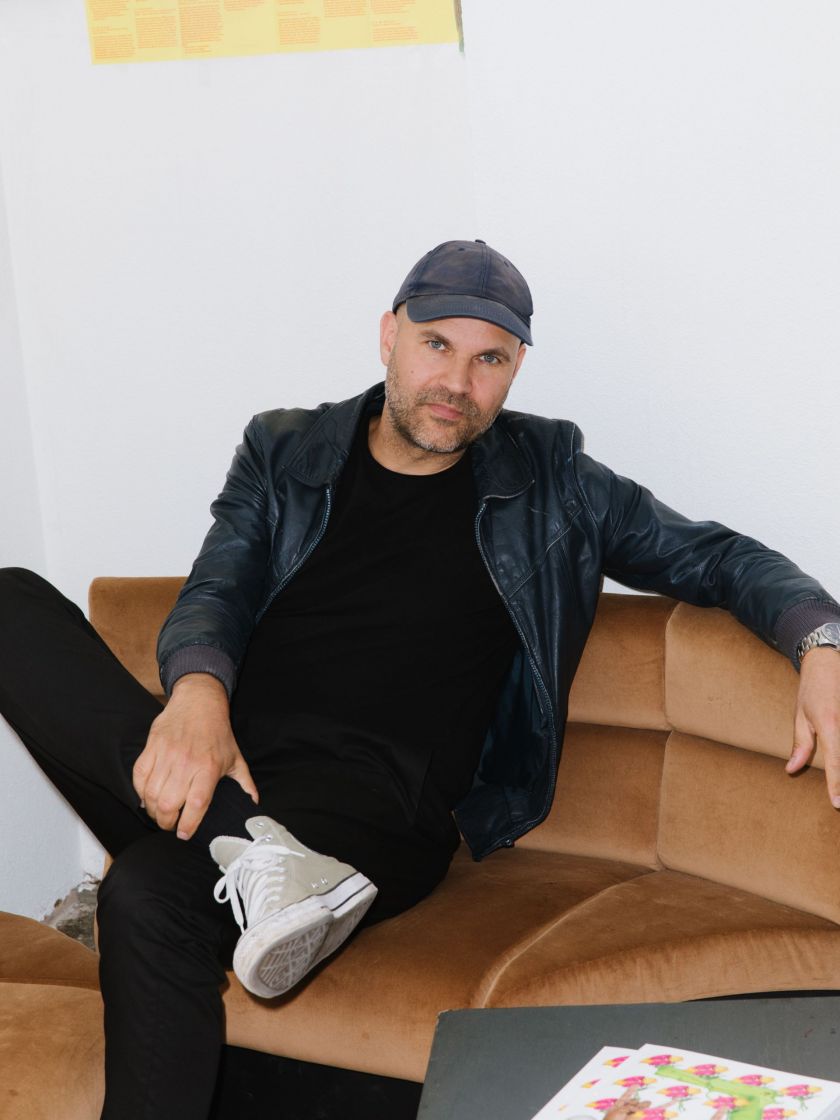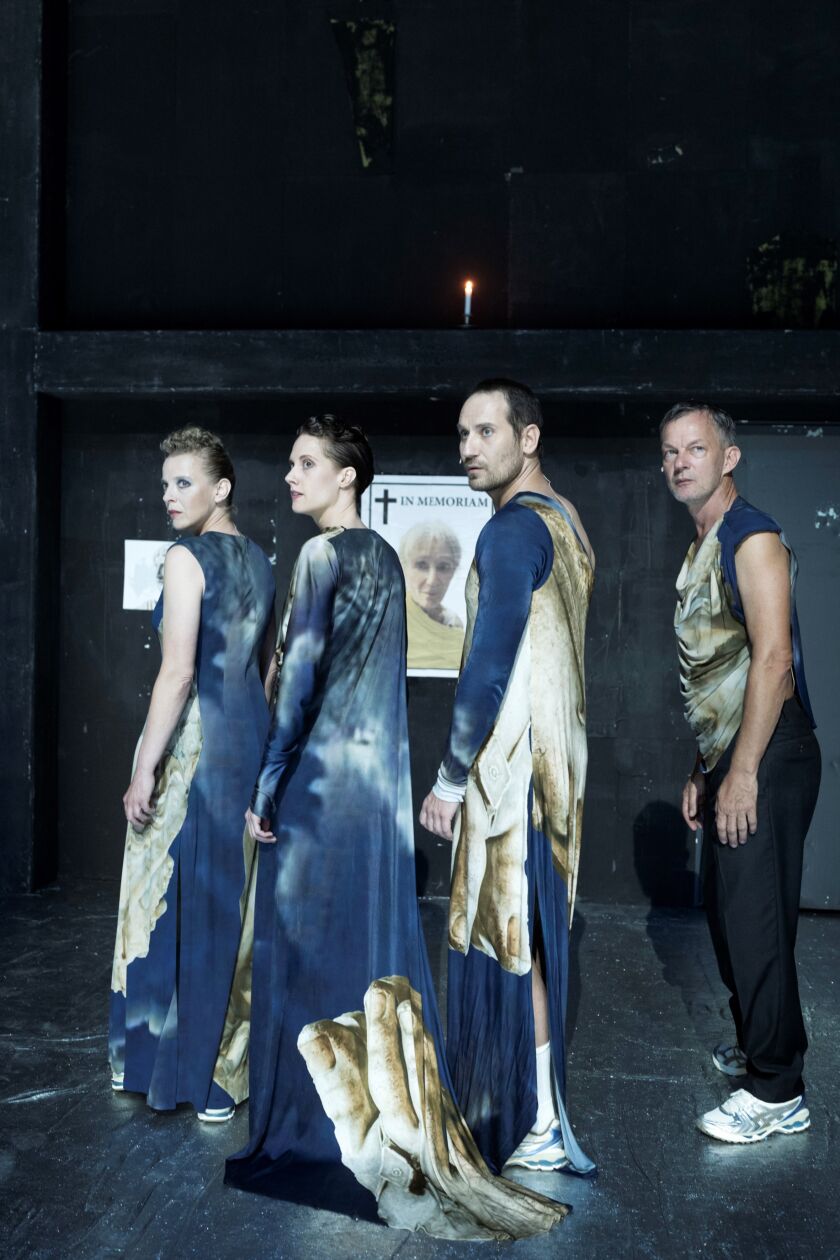About the Production: Die Orestie
„The great thing about classical tragedy is: everyone is right.“

After Faust I + II (2011) and Die Räuber (2008), the German director Nicolas Stemann turns to Greek tragedy this coming Festival summer, merging Aeschylus’ Orestie with its sibling works by Sophocles and Euripides. The new version is being created before a backdrop of worldwide violent struggles and a present in which democracy is increasingly questioned. In this interview, Stemann discusses his reasons for exploring these antique dramas.
Why the Orestie by Aeschylus?
In these tales, we find the same questions we ask today when thinking about the world and present times, on different levels. The basic question in the Orestie is: how can we exit this vicious circle of vengeance and retribution? Aeschylus’ trilogy offers several answers. In the end, the goddesses of revenge are tamed and become the city’s guardian deities – that is also the beginning of classical democracy and law. How they get there – and if that is truly a viable way of achieving this end – remains another question. In the piece, the manner is rather doubtful. However, one should acknowledge that even attempting to give such an answer is great.
What fascinates you about antique tragedy?
The great thing about classical tragedy is: everyone is right. You have positions which are irreconcilable, but taken on its own, each of these positions is right. Believing that they are right, the characters do things they believe are right; for example, they commit murders. They commit murders because they are conscious of a necessity. This, of course, raises the question: how is this motivated – is it the gods who make you do it – or are these gods perhaps a cipher for inner motivations which seem absolutely without alternative at the moment? And then, something happens: namely that these murders don’t really help the characters. Neither do they get satisfaction, nor are they able to bear the weight of their deeds. So what we have is first a putative inevitability, and in the moment when the murder takes place, we experience how little humans are actually able to live with these deeds. And the same applies – on another level – to war.

How so?
The war is not shown in these pieces, even though the subject is always in the background; instead, they show what war does to people, both to the victims of war and its profiteers. The Orestie is not set in Troy, not on the battlefields or in the war-ravaged city, as is the Iliad, for example. It is set in Mycenae – the war has been won, and one could really celebrate. This celebration, however, goes wrong, for even the people who have profited from this war were destroyed by it, which raises the banal question: is it worth it? – And on the other hand, if it isn’t worth it: why does this happen over and over? These questions are inherent in the story – and that’s what makes it timeless.
How does one present that on stage?
When you study a story like this, you quickly arrive at a point where you ask: how can you stage something like that? Is it even possible to represent war? What is aesthetically allowed, what can you do, in the face of real suffering? How do you deal with these images we all have, do you reproduce them, or suppress them? – These questions are inherent in the ancient material, where – as already mentioned – you only see the shadow of war. You see people who have something to do with the war in different ways – as beneficiaries, onlookers, victims – but who are not directly involved in this war. This is a pretty good description of our situation. There is the simultaneity of life here in Central Europe, which seems so peaceful: the wars are getting closer and closer, but somehow we manage to repress that knowledge all the time. This evening is about showing what it means to live in a world of war, to be connected to wars, but currently not directly affected by them. – And how to live with that…
Your productions are known for very precise text versions, for their musicality of language …
One has the impression that with Aeschylus, every answer goes on for an entire page, and then there is an argument against it, and the effect is very static. I am trying to translate that, to maintain a classical form, but to make the language as concrete and intelligible as possible. I am interested in possibilities to be drawn into these stories emotionally and sensually, to combine antique greatness with contemporary concreteness. The amazing thing is: it works!
Three quarters of the text are spoken by the chorus, and that is when the great truths are put out there. One can read that as many different voices: a chorus which keeps searching for positions, arguments and opinions. It’s almost like music.
First published in the Festival insert of Salzburger Nachrichten 2024
Translation: Alexa Nieschlag
